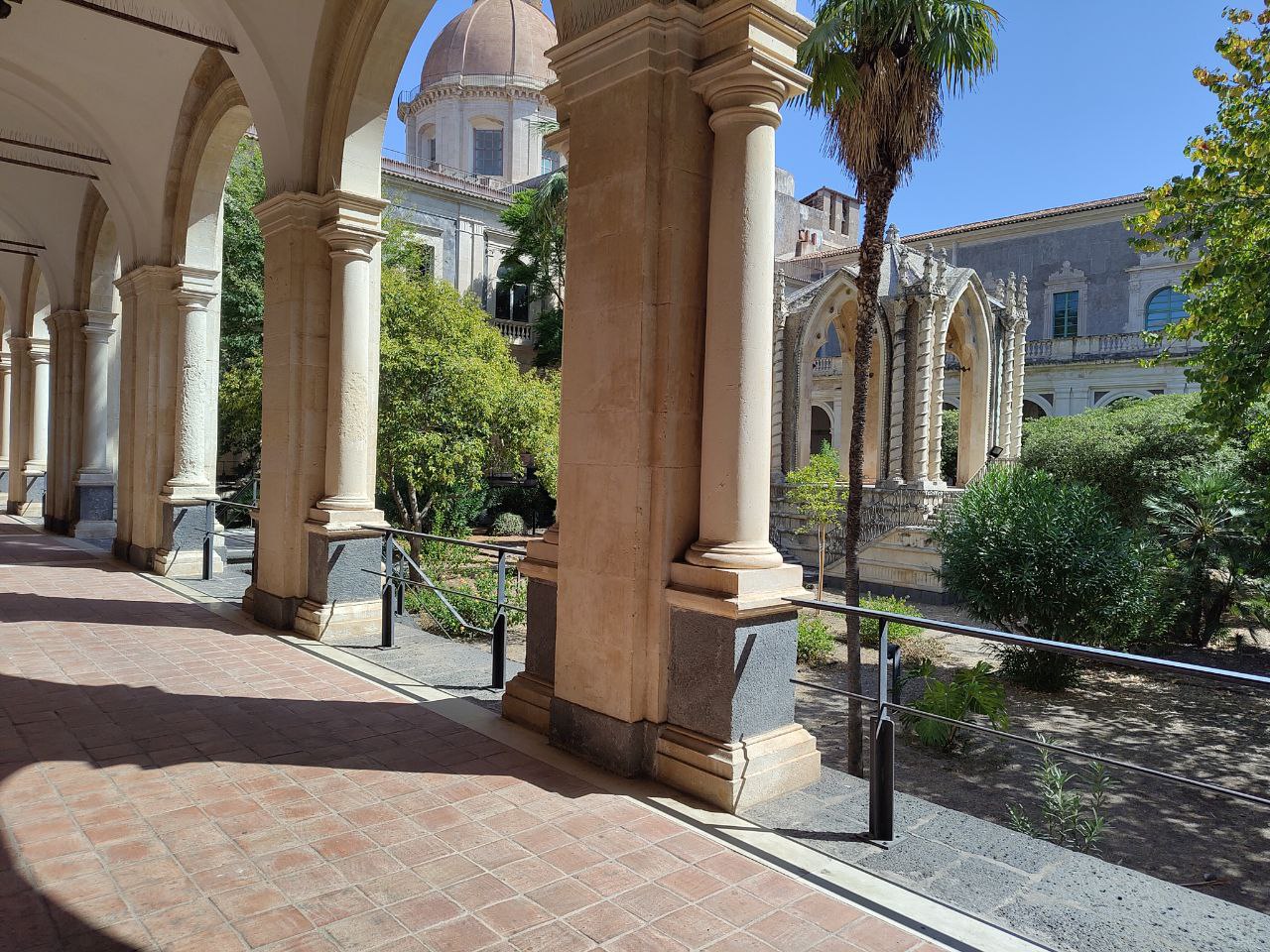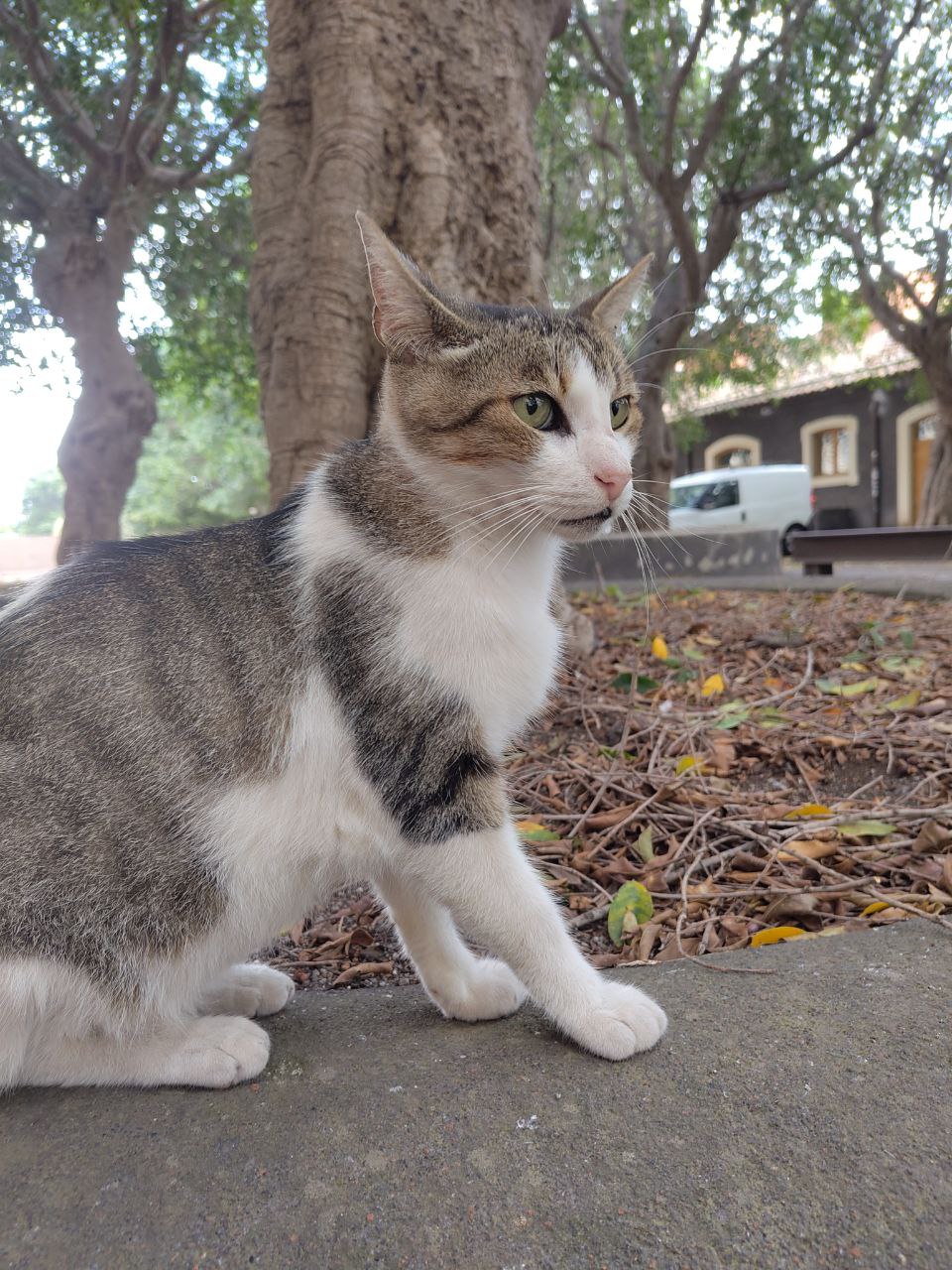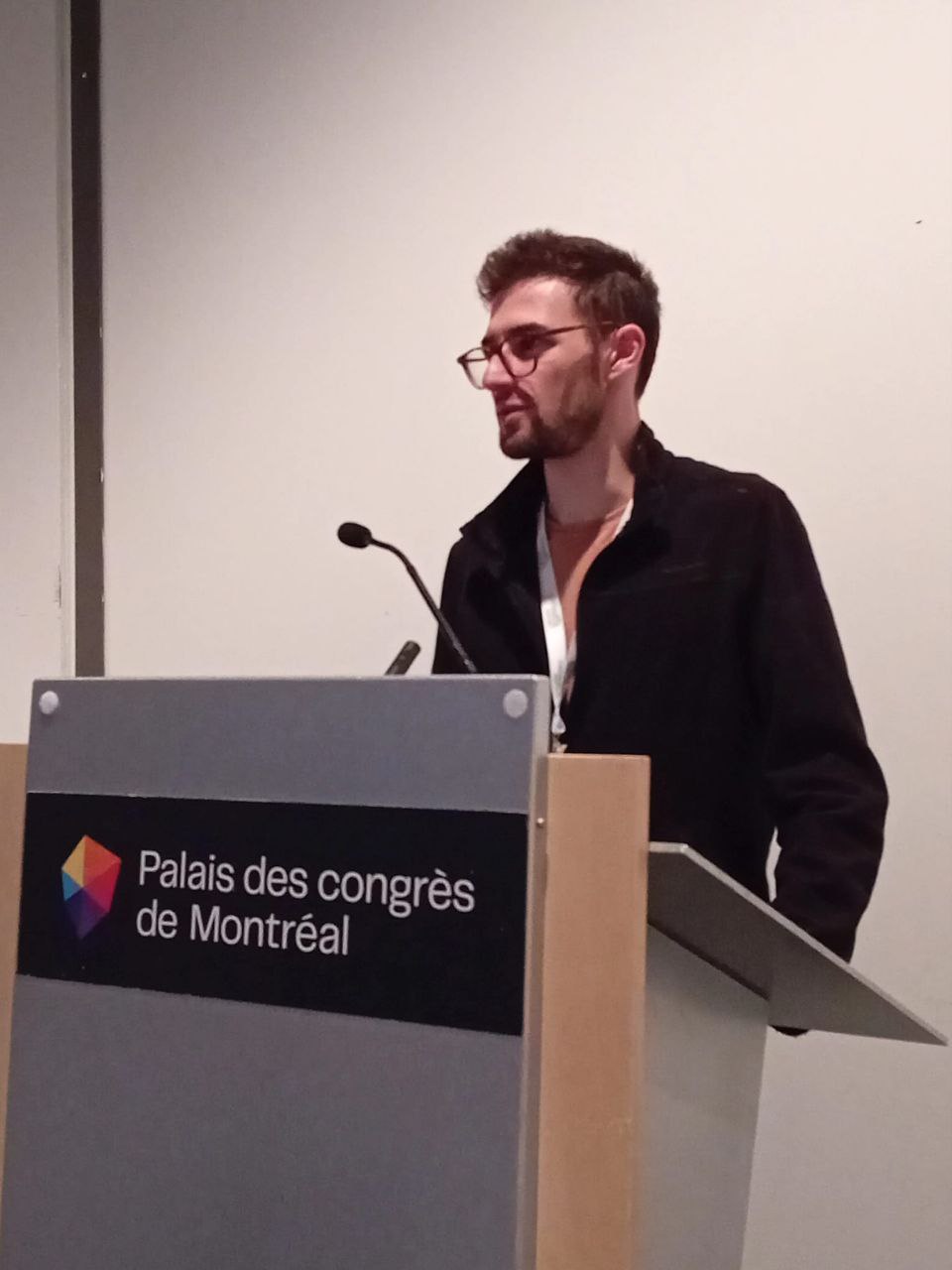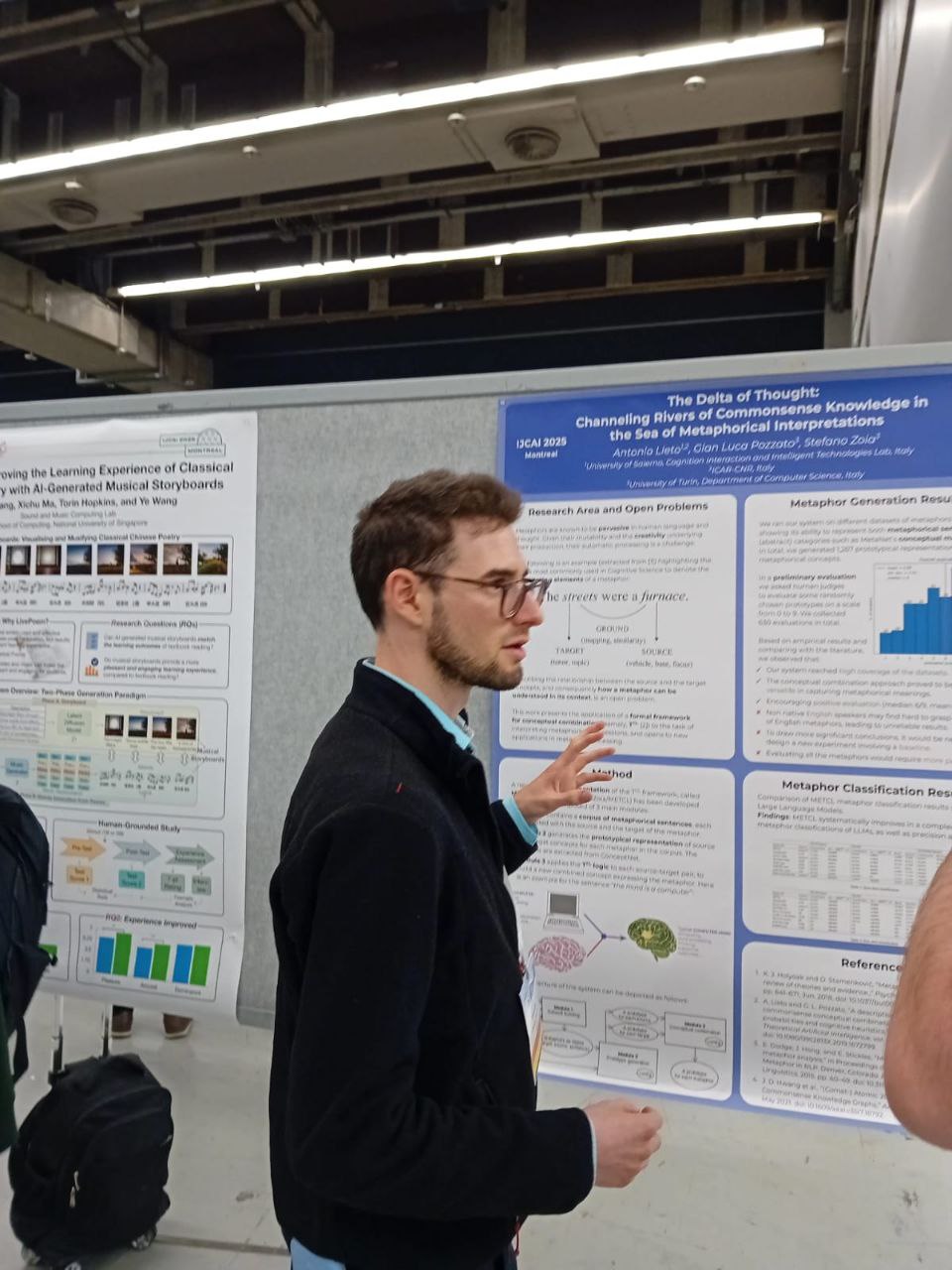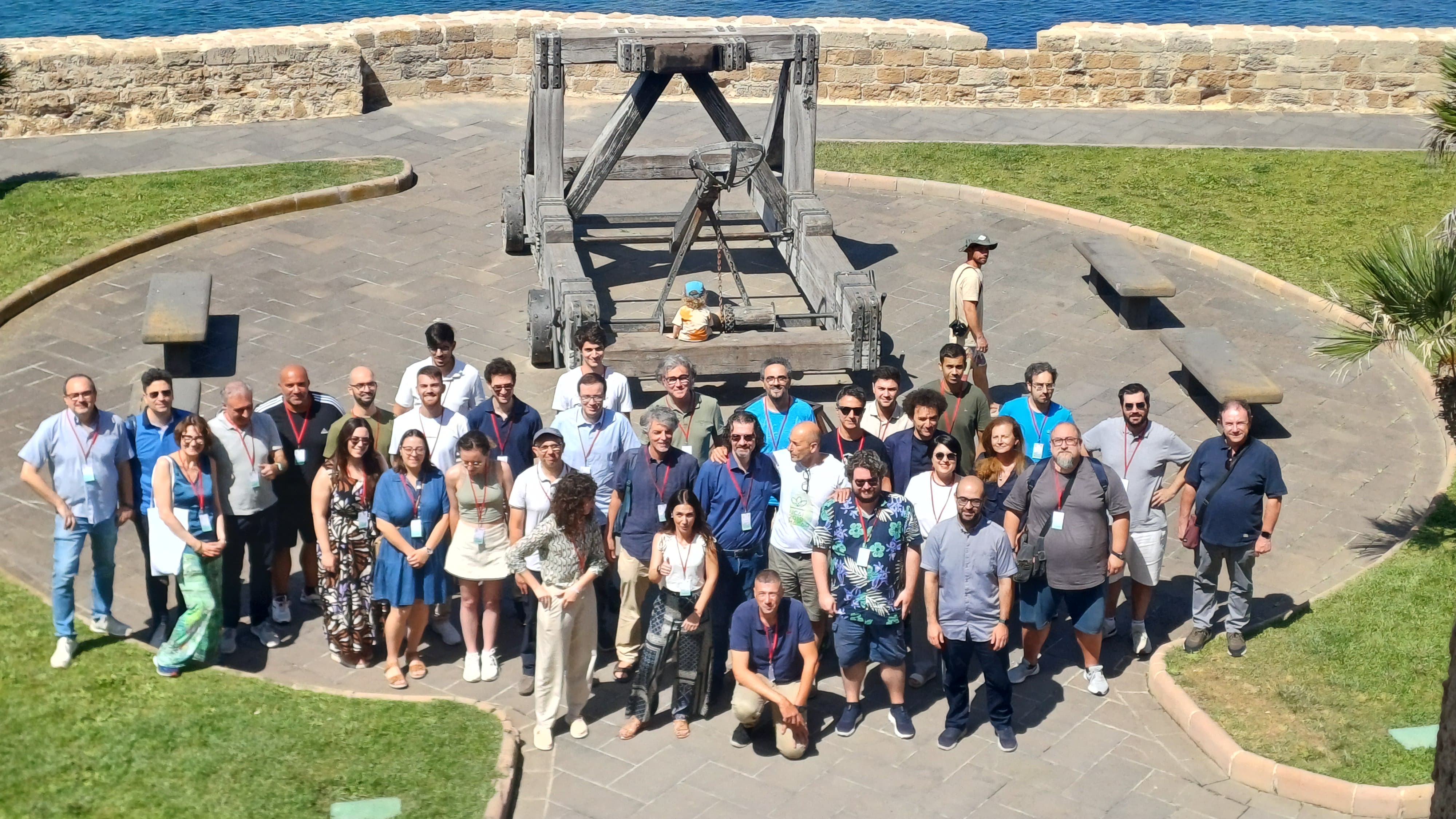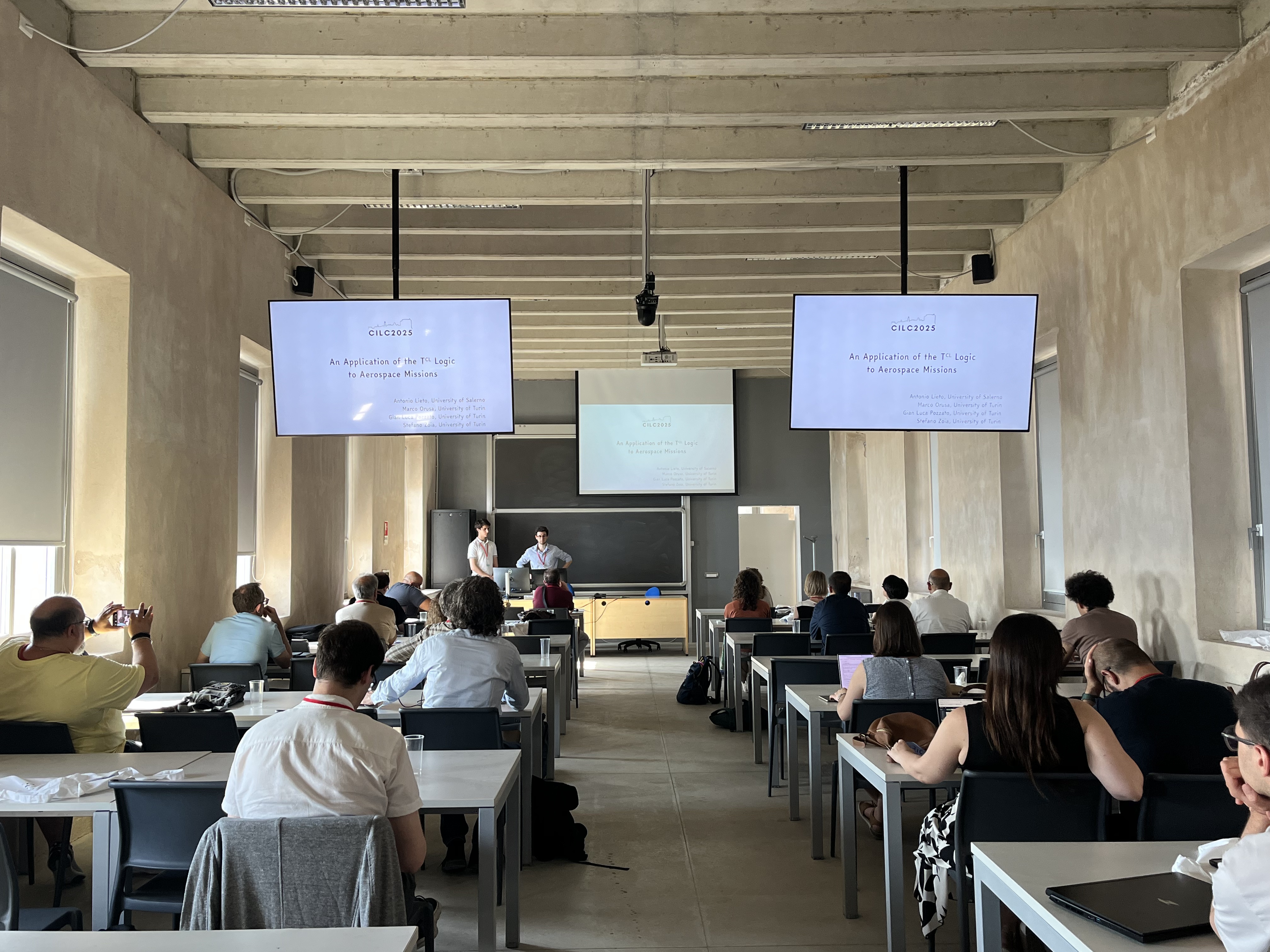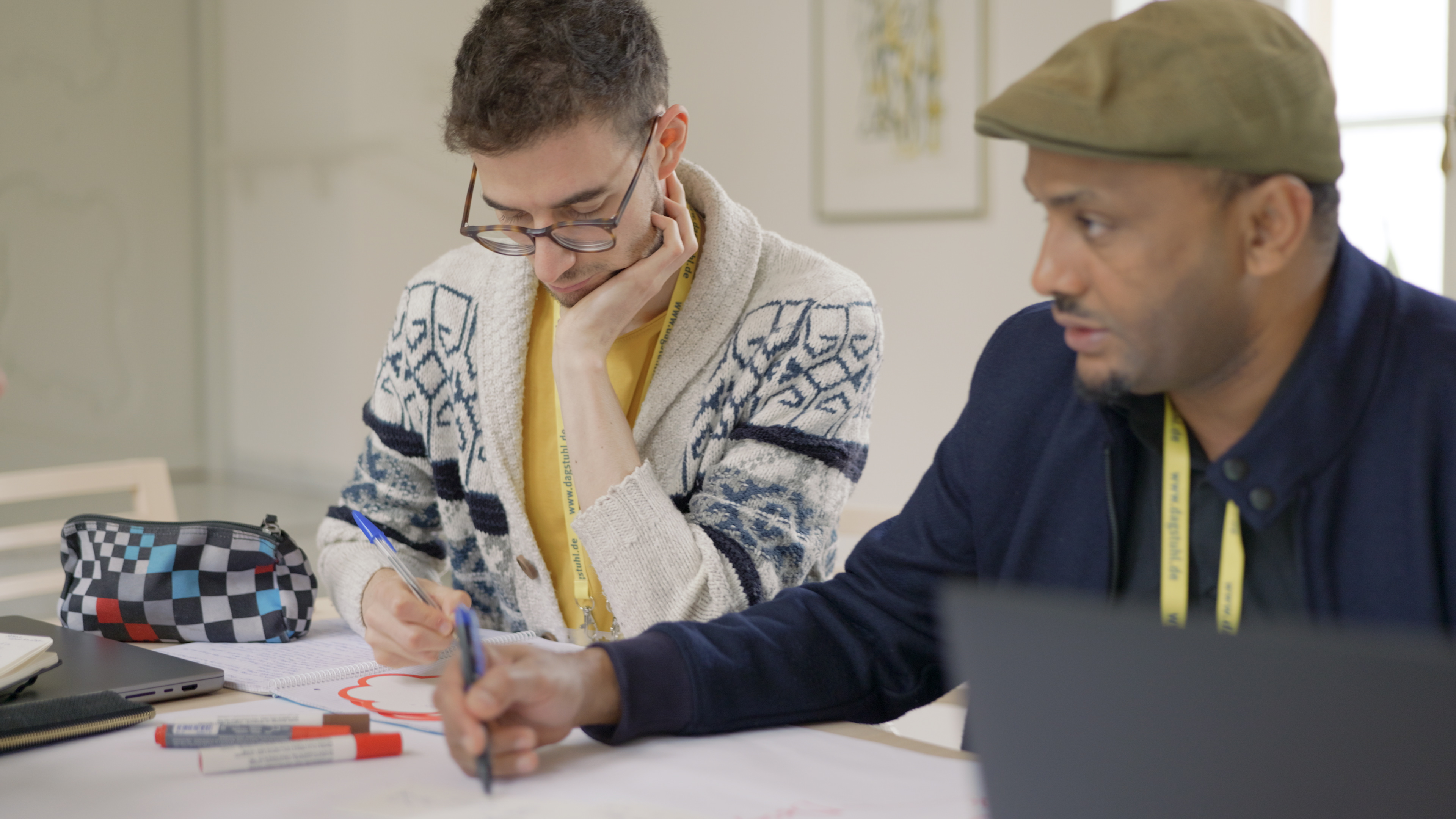Computer Science Department, University of Turin
PhD program in Computer Science
Research topics:
- Commonsense reasoning for Automatic Knowledge Generation
in Computational Creativity Applications;
- Analysis of human behavior in the aerospace context.
November 2023 - Present
Scuola di Studi Superiori “Ferdinando Rossi”, University of Turin
Advanced Qualification Certificate
An interdisciplinary program that integrates students' primary academic studies
with advanced coursework and seminars addressing complex contemporary challenges.
The curriculum emphasizes collaborative problem-solving across diverse fields,
fostering a comprehensive understanding of socio-political issues,
sustainable development, and the interplay between human and natural sciences.
December 2017 – December 2024
Computer Science Department, University of Turin
Master Degree in Computer Science
Artificial Intelligence and Computer Systems course.
November 2020 – October 2023
Computer Science Department, University of Turin
Bachelor Degree in Computer Science
Information and Knowledge course.
September 2017 – November 2020
